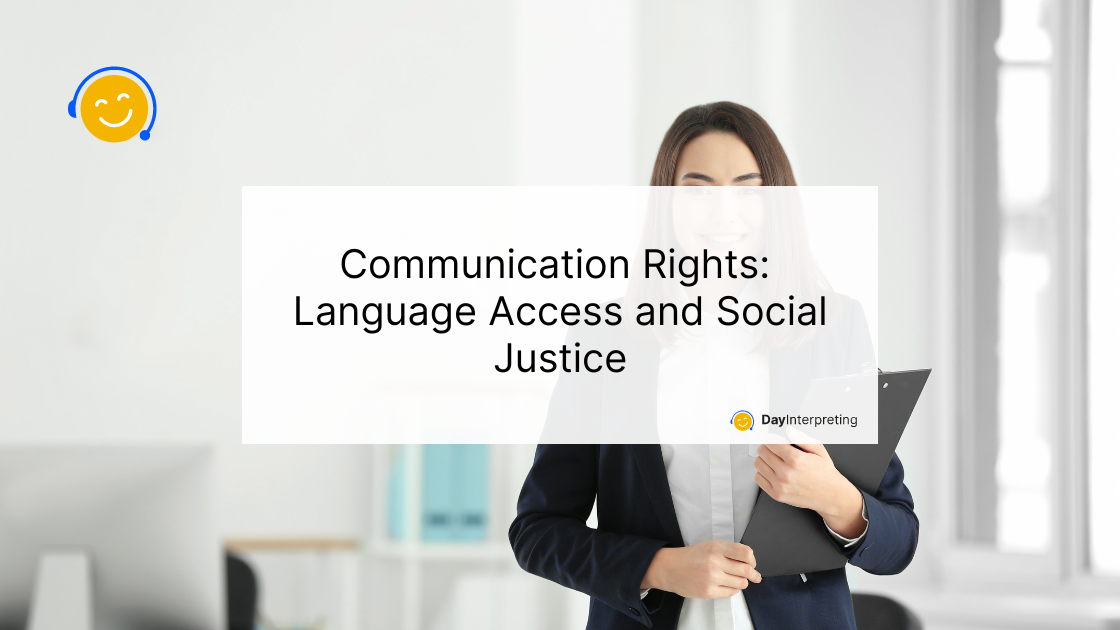communicationIn a world where communication is fundamental to participation in society, ensuring language access is a matter of convenience and a cornerstone of social justice. This article delves into the importance of equal communication rights for all individuals, regardless of their linguistic backgrounds, and explores the challenges and strategies in achieving language access in various contexts.
The Significance of Language Access
Upholding Human Rights
Language access is intricately linked to fundamental human rights, including the right to information, expression, and participation. Denying individuals access to vital services, information, or opportunities based on linguistic barriers violates their right to equal treatment and limits their ability to engage in society fully.
Promoting Inclusivity and Diversity
Equal communication rights promote inclusivity and celebrate linguistic diversity within communities. Recognizing and accommodating diverse languages and communication needs fosters belonging, respect, and cultural affirmation among individuals from linguistic minorities or non-native speakers.
Enhancing Access to Services
Linguistic barriers can hinder access to essential services such as healthcare, legal aid, education, and public safety. Ensuring social justice in these areas is crucial for equitable service delivery, informed decision-making, and effective communication between service providers and recipients.
Challenges in Language Access
Linguistic Diversity
The diversity of languages spoken within communities significantly challenges language rights. Multilingual societies require strategies that accommodate multiple languages in public services, workplaces, educational settings, and legal proceedings to ensure effective communication for all individuals.
Limited Resources
Limited resources, including trained interpreters, translators, and multilingual materials, pose barriers to language access. Many organizations and institutions struggle to meet the demand for language services, leading to gaps in communication and unequal access to information and opportunities.
Legal and Policy Frameworks
Inadequate legal and policy frameworks regarding language access can exacerbate disparities. Clear policies, regulations, and guidelines are essential to mandate language accommodations, training for language service providers, and language access plans in the public and private sectors.
Strategies for Ensuring Language Access
Professional Language Services
Investing in professional language services, including interpretation, translation, and cultural mediation, is crucial for ensuring effective communication across languages. Trained interpreters and translators facilitate language access in various settings, from healthcare and legal proceedings to business negotiations and community interactions.
Technology Integration
Harnessing technology, such as language interpretation apps, remote interpreting platforms, and machine translation tools, complements professional language services and enhances accessibility. Digital solutions expand language access in virtual and remote settings, overcoming geographical barriers and promoting real-time communication.
Cultural Competence Training
Providing cultural competence training for service providers, educators, and professionals improves their ability to navigate linguistic diversity sensitively and effectively. Cultural competence fosters empathy, respect, and understanding of diverse linguistic and cultural backgrounds, promoting inclusive communication practices.
Language Access in Key Sectors
Healthcare
Language access is critical for patient-provider communication, informed consent, and access to medical information and services in healthcare settings. Trained medical interpreters, translated materials, and language-concordant care improve health outcomes and patient satisfaction among linguistically diverse populations.
Legal Justice
Ensuring communication rights in legal proceedings, including court hearings, trials, and legal consultations, upholds due process and fair representation. Qualified court interpreters, translated legal documents, and linguistic assistance programs guarantee equal access to justice. This is especially true for individuals with limited English proficiency or non-native speakers.
Education
Language access in education promotes academic success, language development, and inclusive learning environments. Bilingual education programs, language support services, and culturally responsive teaching practices support students from diverse language backgrounds. They also enhance educational equity and outcomes.
Advocacy and Collaboration
Community Engagement
Engaging linguistic communities, advocates, and stakeholders in discussions about language rights promotes awareness, empowerment, and advocacy for equal communication rights. Community-driven initiatives, language access workshops, and multilingual outreach campaigns amplify voices and mobilize support for linguistic diversity and inclusion.
Collaborative Partnerships
Collaborative partnerships between government agencies, nonprofit organizations, language service providers, and community groups strengthen communication rights initiatives. Collective efforts in policy advocacy, resource allocation, and capacity building enhance social justice infrastructure and promote sustainable solutions.
Empowering Equal Communication Rights
Communication rights are not a luxury but a fundamental human right and a cornerstone of social justice. Ensuring equal communication rights for all individuals, regardless of their linguistic backgrounds, requires collaborative efforts, innovative strategies, and a commitment to inclusivity and diversity. By investing in professional services, integrating technology solutions, fostering cultural competence, and advocating for policy reforms, we can empower individuals to participate in society fully, access essential services, and exercise their rights to information, expression, and participation. Together, let’s build a more inclusive and equitable world where language is a bridge, not a barrier, to opportunity and understanding.





0 Comments